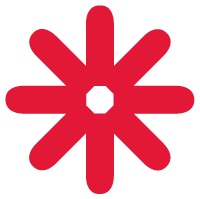How do we determine if the outcomes of our programs are being achieved?
It is not enough to dream about and design relevant and innovative curriculum, we also have to assess it and determine if our objectives and outcomes are being met.
While assessment is part of Quality Council‘s Quality Assurance Framework, or QAF, curriculum assessment is also good pedagogical practice.
In research, we don’t just collect data and let it sit; we analyze it and, in some cases, make policy or practice recommendations based on our assessment. This element of analysis is important for our programs’ curriculum too: Are students meeting the Outcomes set out for the program? Are the courses aligned with each other and the program goals in the ways that were envisioned? Are there elements of the curriculum that can, or should be, refreshed?
Essentially we’re asking:
- Is your program fulfilling the goals or objectives you have for the program?
- Are the Program Learning Outcomes (PLOs), courses, and credits, working together to be the program that best represents what is being taught by faculty and learnt by students?

What Program Assessment Is:
- An evaluation of whether the parts and whole of a program are being achieved
- A discrete focus on and analysis of curriculum
- An opportunity for the discussion and development of a shared program vision amongst colleagues
What Program Assessment Is Not:
- Individual student performance shown though assignment grades (for more see Eberly Center)
- Teaching evaluations
- An opportunity to demonstrate individual excellence or failure
Common Misconceptions can be found here
Why Do We Assess Program Learning Outcomes (PLOs)?
- To ensure the program and the Program Learning Outcomes (PLOs) are effectively aligned with program courses and that program courses are effectively aligned with the PLOs
- To ensure that there is space within courses to monitor the progression of the PLOs achievement, i.e. that there are key assignments within courses designed to assess PLOs
- To ensure when assessing the program, we are not assessing students or faculty. We are instead looking at how the program works together to reach the goals set out in the PLOs
- To ensure that the program and PLOs are being monitored to best reflect the needs to students, the field(s) of study, and/or future profession
- To ensure it is a program of quality as defined by Ontario Universities Council on Quality Assurance
Assessment Tools
*Note: Multiple assessment tools can and should be used to provide a multidimensional analysis of the program
- Course mapping (Discussed here)
- Assignment(s) in key courses (Discussed here) (Also see examples in HEQCO’s Handbook)
- Cumulative program experience, such as a Capstone
- Portfolios of students’ work collected throughout their program
- Student progress reports
- Surveys and/or focus groups with current students
- Surveys and/or focus groups with alumni
- Institutional Data
Useful Questions to Drive Assessment
- Can there be key assessments in courses that are developed and discussed amongst many faculty?
- Can these findings and discussions be recorded and used to develop a plan for change?
- Is there a ways we can make sure that what we’re teaching and what students are learning are in alignment?
Common Misconceptions About Program Assessment from the University of Central Florida
Key Links
Additional Resources
Interesting Readings
Henning, Gavin, and Anne E. Lundquist. 2022. Using Assessment to Advance Equity. New Directions for Student Services. 2022(178-179), 185-194.
MacFarlane, Alexandra & Brumwell, Sarah. 2016. The Landscape of Learning Outcomes Assessment in Canada. HEQCO.
Watling, Christopher J., and Shiphra Ginsburg. 2019. Assessment, Feedback and the Alchemy of Learning. Medical Education, 53(1), 76-85.
Walvoord, Barbara. 2011. How to Construct a Simple, Sensible, Useful Departmental Assessment Process. Literary Study, Measurement, and the Sublime: Disciplinary assessment, 335-352.

Interested in renewing or innovating your curriculum?
Explore our resources or contact our Program and Curriculum Development Specialist for support.
